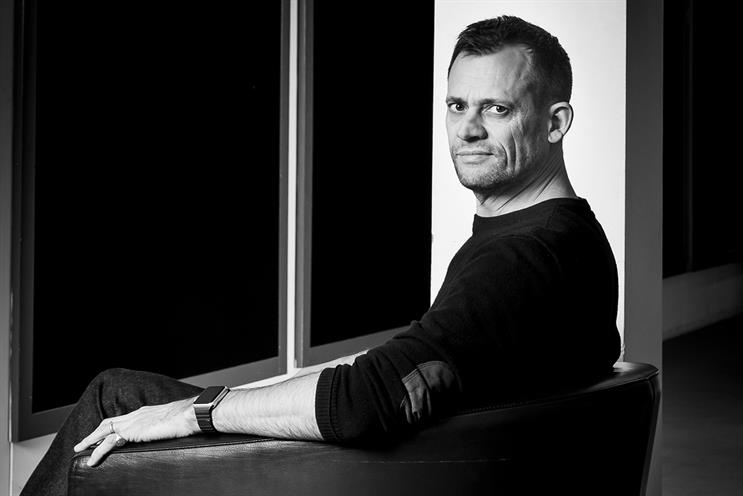Much has been written about Paul Silburn since his untimely death last month, a great deal of it by a creative community mourning its loss. And rightly so, as one of the greatest craft copywriters of our age, he deserves every one of the words he used so well to be put to use commemorating his life and career.
As a planner, responsible for making sure the work works, I have always been in awe and in need of a creative partner who really understands that their part of the bargain is to make the work good. Not to make excuses for why the work is fine, but to make it good and call it out if it isn’t.
And with Paul, if he said that 13,000 people singing Hey Jude in Trafalgar Square was going to be amazing, it was going to be amazing. If he said that a bunch of lookalike members of the royal family dancing down the aisle to East 17 was going to be funny, it was going to be funny. And if he said that getting The Go! Team to remix Come on Train by Don Thomas for a Visa ad was going to be cool, it was going to be cool.
That is not to say that Paul was executional, not conceptual, or focused on creative output over the strategy. After all, it was Paul who casually mentioned to me that insurance that fixes things when they go wrong reminded him of a scene in Pulp Fiction when Winston Wolfe helps clean up after an unfortunate firearms accident in a Chevy Nova. A moment’s creative leap that turned the commercial fortunes of Direct Line on a pinhead.
But his undoubted superpower, much commented upon, was that he believed that he had a responsibility to make the work enjoyable – inspiring, beautiful, stimulating and, above all, funny. And watching back through the legacy he left the industry, I’m reminded of something we are starting to forget. That advertising must entertain – indeed, if it’s not entertaining, it isn’t really advertising at all, it’s just content.
Yet, how often are we in conversations with clients about enjoyability, entertainment and fame as primary metrics of the work, rather than nice added extras? Executional flourishes to indulge in once we are 100% sure our message has been committed to people’s memories?
We are obsessed about cut-through and recognition, and yet forget that work people actively enjoy is far more likely to get noticed and be remembered. .
We are obsessed about accurate communication and yet forget that people are far more likely to accept our messages if the iron fist arrives in a velvet glove. .
We are obsessed by attribution and so-called "memory structures", and yet forget that one of the most distinctive assets is a reputation for fabulous and funny work. .
We are obsessed by building enduring equity and yet forget that loved creative platforms resist wear-out and endure for years. .
The result is an environment in which entertainment increasingly feels relegated. Entertainment, mind, not creative fashion or clever industry in-jokes, but entertainment. An environment in which work is often either interestingly irrelevant or ever so earnest.
And therein lies a broader problem beyond the fortunes of any one campaign or any one brand. A precursor for the effectiveness of anything and everything that we do is our social contract. The contract that means society by and large tolerates our intrusion into their lives on every platform they enjoy. This social contract depends on us being legal, decent and honest, but it also depends on us not boring people witless or irritating the hell out of them. For bad work harms us all.
David Ogilvy said: "We sell or else." Paul’s legacy reminds us that we entertain or else.
Of course, the truth is that Paul did both. Just before he joined us at Saatchi & Saatchi, he freelanced at the much-missed Rainey Kelly Campbell Roalfe/Y&R, selling the unfamiliar concept of video-on-demand with a beautiful line: And entertaining the nation with the spectacle of thousands of penguins taking to the air on their annual migration to warmer climes. I’m giggling as I write that; imagine being in the first creative review.
Next year, let’s remember Paul by elevating entertainment once more to a primary metric for our brands and their work.
Richard Huntington is chairman of Saatchi & Saatchi London



